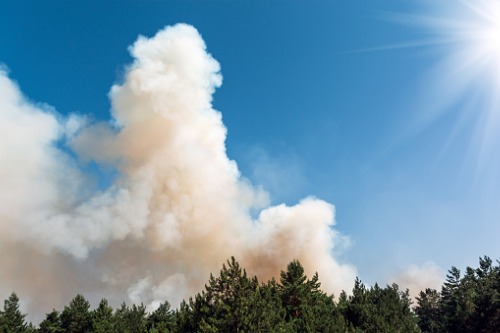

Producers in Okanagan are concerned that the smoke coming from BC’s wildfires could affect their businesses.
Wine producers are worried that “smoke taint” from the wildfire might spoil the flavour of their grapes.
University of British Columbia Okanagan PhD chemistry student Matt Noestheden has been working with winemakers on conducting tests to assess the quality of grapes exposed to the smoke, and he stated that the tests are not always conclusive.
“For this season, time will tell,” Noestheden told The Canadian Press. “If I could [predict the quality] I would be a rich man.”
He also said that he is helping winemakers come up with measures to protect the grapes, but added that “there is nothing that grape growers can do that will definitely protect the grapes.”
Although it is too early to assume how the smoke will affect the wines produced, Noestheden warned that the longer the smoke lingers the greater the chance of a spoiled product.
Wine grapes change colour from green to red in a process known as veraison – Noestheden’s research found that grapes are most susceptible to smoke taint during this transition period. Unfortunately for wine producers in the north Okanagan, their grapes are undergoing the process as smoke encroaches upon their vineyards.
The only way to confirm if a batch of grapes has been affected by smoke is to immediately produce a small batch of wine following the harvest.
Honey producers have also reported issues arising from the wildfire smoke.
Local beekeeper Bob Chisholm told The Canadian Press that his operation will produce 40% less honey this year thanks to the smoke. He explained that the smoke makes the bees lethargic and slower.
Chisholm also said that dry conditions have led to less nectar in flowers, which could also contribute to a reduced honey output.
Although the smoke conditions are the worst Chisholm has seen in his two decades of beekeeping, he believes that he does not need to change his operations in any way.
“At the end of the day, we’re farmers. Farmers are used to having crops up and down. We work our way through it,” he said.
